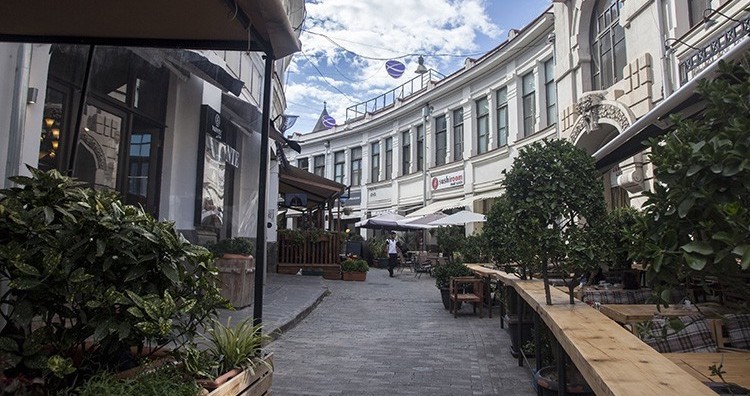Q3 2020: Georgian economy shrinks 5.6%

GDP deflator increased by 5.9 per cent in Q3 2020. Photo: Nino Alavidze/Agenda.ge.
Nominal gross domestic product (GDP) amounted to 13.33 billion GEL in the third quarter of 2020 in Georgia, while real GDP declined by 5.6 per cent year-on-year and the GDP deflator increased by 5.9 per cent in the reporting period, show preliminary data from the National Statistics Office of Georgia.
A decrease was registered in the following activities:
- Accommodation and food service activities (-53.1 percent)
- Transportation and storage (-25.0 percent)
- Arts, entertainment and recreation (-32.4 percent)
- Administrative and support service activities (-49.0 percent)
- Professional, scientific and technical activities (-12.5 percent)
- Electricity, gas, steam and air conditioning supply (-11.5 percent)
- Financial and insurance activities (-4.4 percent)
Real growth was registered in the following sectors:
- Public administration and defence; compulsory social security (4.3 percent)
- Human health and social work activities (6.6 percent)
- Education (5.6 percent)
- Mining and quarrying (14.7 percent)
- Construction (2.0 percent)
- Agriculture, forestry and fishing (1.5 percent)
In early December, Head of the National Bank of Georgia Koba Gvenetadze projects the Georgian economy will grow 5% in 2021.
We think that by 2021 the economy can grow by 5%. Do not forget that a fiscal stimulus is also planned at a fairly high level, while lending activity is maintained. We have to take into account that it is very difficult to make predictions during the pandemic and there is a lot of uncertainty", Gvenetadze said.
As for 2020, Gvenetadze said that this year the economy will shrink 5%.
The 2021 state budget was previously planned with a 4.3% economic growth forecast, however Georgian Finance Minister Ivane Matchavariani said back in late November that there was 'a significant decline in revenue’ in November and January and February will be 'severe' because of the new restrictions announced by the government on November 26, which will affect economic growth next year.
Matchavariani projected the economy would experience 4% growth next year.
 Tweet
Tweet  Share
Share






